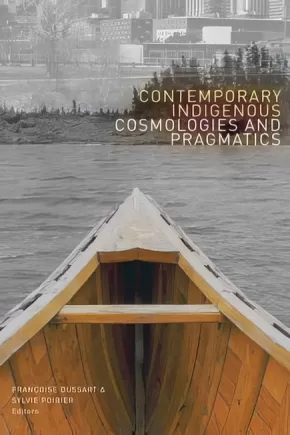Indigenous Peoples in Brazil
Synopsis:
In this timely collection, the authors examine Indigenous peoples’ negotiations with different cosmologies in a globalized world. Dussart and Poirier outline a sophisticated theory of change that accounts for the complexity of Indigenous peoples’ engagement with Christianity and other cosmologies, their own colonial experiences, as well as their ongoing relationships to place and kin. The contributors offer fine-grained ethnographic studies that highlight the complex and pragmatic ways in which Indigenous peoples enact their cosmologies and articulate their identity as forms of affirmation. This collection is a major contribution to the anthropology of religion, religious studies, and Indigenous studies worldwide.
Contributors: Anne-Marie Colpron, Robert R. Crépeau, Françoise Dussart, Ingrid Hall, Laurent Jérôme, Frédéric Laugrand, C. James MacKenzie, Caroline Nepton Hotte, Ksenia Pimenova, Sylvie Poirier, Kathryn Rountree, Antonella Tassinari, Petronella Vaarzon-Morel
Reviews
“Contemporary Indigenous Cosmologies and Pragmatics advances debates about how Indigenous cosmologies are received, understood, and valued. The contributors consider the complex connections that emerge between religiosity, politics, activism, and the ways in which globalization continues to shape these processes as Indigenous cultures relate with different elements of traditionally European religions.” - Amy Whitehead, Senior Lecturer in Social Anthropology, Massey University
Educator Information
Keywords / Subjects: Cosmology; religion; ritual; Indigenous; settler-Indigenous; spiritual; ethnography; Americas; Australia; Malta; Russia; secular; globalization; entanglement; identity politics; Social Science; Comparative Religion, Anthropology; Beliefs
Table of Contents
1 Indigenous Cosmologies, Entangled Religiosities, and Global Connections 1
A Theoretical Overview
FRANÇOISE DUSSART & SYLVIE POIRIER
2 Embracing Christianity, Rejecting Western Individualism? 33
Inuit Leaders and the Limits of Indigenization
FRÉDÉRIC LAUGRAND
3 Engaging Religiosities 59
Relationality, Co-existence, and Belonging among Lander Warlpiri, Central Australia
PETRONELLA VAARZON-MOREL
4 Making People 87
Manipulating Alterity in the Production of the Person among the Karipuna People of Northern Brazil
ANTONELLA TASSINARI
5 Discourses on the Advent of New Times among the Kaingang People of Southern Brazil 111
ROBERT R. CRÉPEAU
6 From Unknown to Hypermediatized 133
Shipibo-Konibo Female Shamans in Western Amazonia
ANNE-MARIE COLPRON
7 Tying Down the Soul of a Potato in the Southern Peruvian Andes 157
Performance and Frictions
INGRID HALL
8 Negotiating Indigenous-Global Relationships in Contemporary Shamanism 187
The Case of Malta
KATHRYN ROUNTREE
9 Indigenous Cosmologies and Social Media 219
Creativity, Self-Representation, and Power of the Image for First Nations Women Artists
CAROLINE NEPTON HOTTE & LAURENT JÉRÔME
10 Human Remains and Indigenous Religiosity in the Museum Space 253
Ritual Relations to the Altaian Mummy in the Anokhin National Museum of the Altai Republic, Russia
KSENIA PIMENOVA
11 Shaman, Christian, Bureaucrat, Cop 285
Maya Responses to Modern Entanglements
C. JAMES MACKENZIE
Contributors 311
Index 317
Additional Information
344 pages | 6.00" x 9.00" | Paperback






